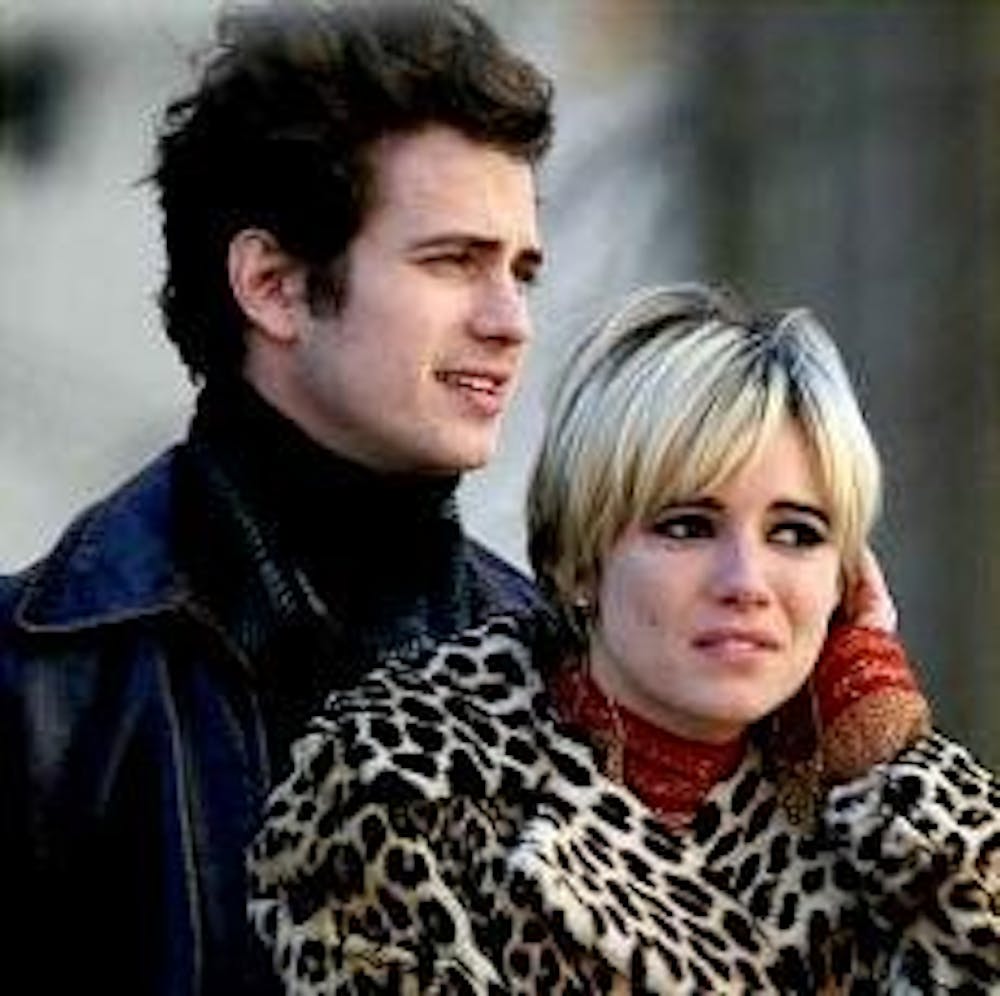The Village Voice recently described George Hickenlooper's off-centered opus about the life and times of Andy Warhol's notorious chanteuse and Factory queen as "Edie For Dummies." The movie follows the humble time line of socialite and debutante Edie Sedgwick from her questionable start at art school to her ultimate drug-induced demise. Hickenlooper's homage to pop art and Manhattan in the '60s is little more than a fashionably timed and somewhat stupid take on the era.
The bulk of the film is devoted to the relationship between Andy and Edie, emphasizing Andy's power and Edie's na've willingness to do whatever for the sake of his Factory. Hickenlooper's depiction of the Factory as a sort of assembly line for art is weak at best. The audience is made sure that Warhol is indeed calling all the shots in the introductory scene, where Sedgwick leaps toward him to declare that his work is "so important!"
Apart from a few scenes where Warhol is shown directing one of his infamous films, the body of his artistic vision and whatever brought the Factory together is ignored. Instead, the focus is on Sedgwick's wide-eyed pursuit of fame. The audience is neither guided toward any sort of understanding of Sedgwick's self-invested interest in her own notoriety, nor toward Warhol's appeal to the New York underground.
Guy Pearce's Warhol is pasty and unappealing, playing up an idea of malicious superficiality that would ultimately drag Sedgwick into her own whirlpool of addiction. Pearce's character development hinges on a critical idea presented in the screenplay by Warhol himself-that his whole scene is created on his ugly attachment to the beautiful and fabulous. Warhol's compensatory obsession with beauty and fame is channeled into his Factory, something malleable by his vision. Sienna Miller's Sedgwick is bright but not glimmering, lacking the sparkle that turned the real-life Edie into the gossip column scenester she really was. The film dully portrays her as flitting about the Factory and suddenly transitioning into the relationship screenwriter "Captain Mauzner" (aka Josh Klausner) asserts as the breaking point between Warhol and Sedgwick.
Velvet Underground front man Lou Reed claimed that Mauzner's screenplay was that of an "illiterate retard." Perhaps that claim stems from his timid and offensive portrayal of "The Musician;" this clearly last-minute coping mechanism for thoroughly pissing off Bob Dylan was what could possibly be considered the worst on-screen rendering of a real person ever recorded. The film itself experienced release date setbacks because Dylan threatened a defamation case because of how he was portrayed and several scenes were re-shot. Rightfully so, as Hayden Christensen's raspy, bushy-haired take on Dylan is absolutely horrid. Warhol and Dylan are shown as bona fide assholes that can't stand each other, or the idea of poor little Edie in cahoots with the other.
The complexities of Sedgwick's relationships with the various men in "Factory Girl" are glossed over with a disturbing ease. Her relationship with Chuck Wein, the man who ultimately brought her to the Factory, is quickly abandoned in favor of long-winded shots of her on the phone with Warhol talking about a legacy that failed to exist. Wein is played by a totally useless and bumbling Jimmy Fallon, a confusing casting choice that is better ignored than dissected. For a movie as obsessed with the underground and the transitory nature of fame as it is, the abundance of celebrity hype is disconcerting.
Also ignored is the complexity that was the Factory itself. The nature of pop art and this particular collective is generally abandoned in favor of scenes of a topless Sedgwick shooting up or freaking out. Warhol's "superstars" composed a veritable cast of character. One particularly oversimplified depiction is that of Bridget Berlin, the overweight and oversexed artist known for her "cock book" and "tit paintings." A random smattering of facts and quotes is coupled with consistently showing her gorging on food reduces the dynamic artist to little more than Warhol's fat girl best friend. The other Factory members are hardly given any depth in the first place.
While the character portrayals range from flat to dismal, the real disappointment in "Factory Girl" is its lack of depth and appreciation for the scene it otherwise reveres. Missing the point so completely, one must wonder if the crew responsible for this abhorrence really sees the Factory as more than just an ill-fated, troubled posse of superficial scenesters and troubadours.





